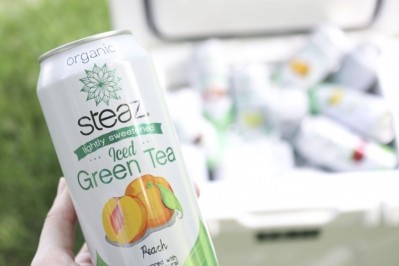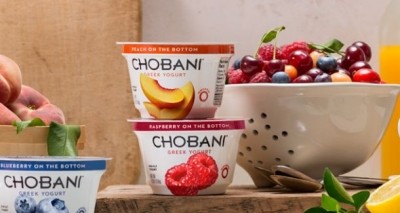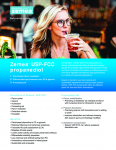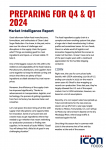FDA guidance continues to be used as a 'roadmap for class action lawsuits'
A tale of two evaporated cane juice lawsuits: Steaz prevails thanks to website disclosure but Late July case will proceed
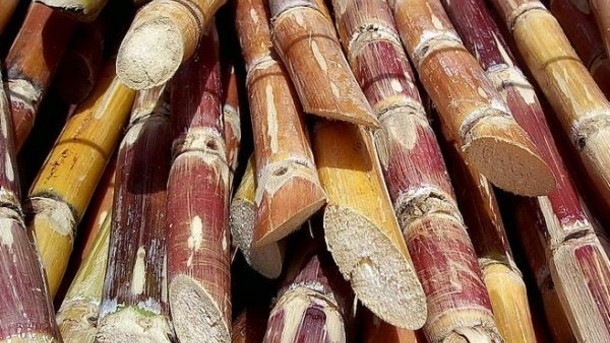
In the first case – Swearingen v Late July Snacks* - judge Edward Chen ruled that the plaintiffs had made a case that a reasonable consumer might be misled by the term ‘evaporated cane juice (ECJ),’ which he noted, citing 2016 FDA finalized guidance, might more accurately be described as ‘sugar.’
The plaintiffs, he added, “believed ECJ was some type of ingredient that was healthier than sugar due to its inclusion of the word 'juice' and its omission of the words 'sugar' or 'syrup.' Moreover, this interpretation is consistent with the FDA‘s rationale for determining that ECJ is a misleading term.”
Three days earlier, however, Judge Chen dismissed a near identical lawsuit – Swearingen v Healthy Beverage Co** (maker of Steaz teas) over the use of the term evaporated cane juice, as Healthy Beverage Co stated on its website [but not its packaging] that “cane juice is natural sugar,” and the plaintiffs’ counsel acknowledged that the plaintiffs “may have looked at” the website. And as such, they could not be under any illusions that ECJ is, in fact, sugar.
Plaintiffs ‘may have looked at’ the website as well as the food label
Several ECJ-related lawsuits were stayed in 2014 after the FDA said it would take a fresh look at the validity of the term ECJ, but came back in play when the agency issued finalized guidance on the matter in May 2016.
The guidance advised manufacturers not to use the term 'evaporated cane juice' on labels because it is false and misleading, although defense attorneys were quick to note that FDA guidance – finalized or otherwise – is not legally binding.
In recent months, ECJ lawsuits against companies including Lifeway Foods and Odwalla (Coca-Cola) have been voluntarily dismissed according to court filings, although it is not clear whether they were dropped or privately settled.
Attorney: FDA guidance isn't law... but that doesn't help food manufacturers
So what can we take away from the ECJ saga, and the FDA's interventions via draft guidance/guidance, which many industry stakeholders argue has caused chaos, confusion, and a tsunami of lawsuits?
Justin Prochnow, shareholder at law firm Greenberg Traurig, told FoodNavigator-USA that the litigation of ECJ claims "has always been interesting because most of the litigation is really the result of what was provided in an FDA draft guidance document, now a final FDA guidance...."
'Class action plaintiff lawyers attempt to use guidance as 'the law,' and a roadmap for class action lawsuits'
He added: "It is crucial to remember that draft or final, FDA Guidances for Industry include non-binding recommendations and do not establish legally enforceable responsibilities. This is made clear at the top of each guidance. Yet class action plaintiff lawyers attempt to use guidance as 'the law,' and a roadmap for class action lawsuits. Unfortunately, the system is set up right now so that plaintiff lawyers can bring such actions and force companies to either defend or settle out for some amount to make it go away.
"I think what both of these cases demonstrate is that many of these cases will not survive or survive on limited claims if companies have the wherewithal to stand up and fight them. Also, as shown in the Healthy Beverage Co case, the alleged 'aggrieved plaintiffs' in many of these cases haven’t actually looked at the labels closely or don’t actually know what is displayed on the labels. These cases are often hastily put together without a great deal of investigation, getting plaintiffs by advertising online or signing up the babysitter or a neighbor to act as the class plaintiff."
That being said, he cautioned, "Due to the sheer time, energy, and cost associated with these class actions, whenever the FDA issues a guidance, companies have to be aware that those opinions are going to be taken as 'the law' and so at least some consideration has to be paid to what the FDA has indicated in the guidance and the risks associated with operating contrary to that guidance."
What is the FDA's position on Evaporated Cane Juice labeling?
In finalized guidance released in May 2016, the FDA said the term ‘evaporated cane juice’ is “false and misleading” and advised manufacturers not to use it on food labels. It also acknowledged that ‘dried cane syrup’ [a term it suggested companies might use in its 2009 draft guidance] is not a great alternative, and has instead advised companies to simply declare ECJ as ‘sugar.’
“We are advising the regulated industry of our view that the term ‘evaporated cane juice’ is not the common or usual name of any type of sweetener and that this ingredient should instead be declared on food labels as ‘sugar,’ preceded by one or more truthful, non-misleading descriptors if the manufacturer so chooses (eg. ‘cane sugar’)."
Why all the controversy?
The use of the term ‘evaporated cane juice’ (ECJ) to describe a crystalized sugar derived from sugar cane has prompted scores of lawsuits against firms from Chobani to Trader Joe’s in which plaintiffs argue that manufacturers only use it because it conceals the fact that they are adding sugar to their products.
ECJ manufacturers, however, insist that the term 'evaporated cane juice' accurately reflects what the product is and clearly distinguishes it from regular white refined sugar (although it does have the same number of calories and counts as sugar in the Nutrition Facts panel).
"The key difference between the two cases was the plaintiff’s admission that he may have looked at the website in the Steaz case. It broadens the class to allege reliance on the website because then potentially all consumers who relied on the website can be included in the class, but here it ended up biting them."
William Dance, attorney, Tucker Ellis LLP
** The case is Swearingen, et al., v. Healthy Beverage LLC, et al., case number 3:13-cv-04385, in the U.S. District Court for the Northern District of California.
** The case is Swearingen, et al., v. Late July Snacks LLC., case number 3:13-cv-0432, in the U.S. District Court for the Northern District of California. In his May 5 order, judge Edward Chen dismissed the plaintiffs' nationwide class allegations and requests for injunctive relief (which were in any case moot as Late July stopped using the term evaporated cane juice in 2014).
Late July did not respond to requests for comment on this litigation.



